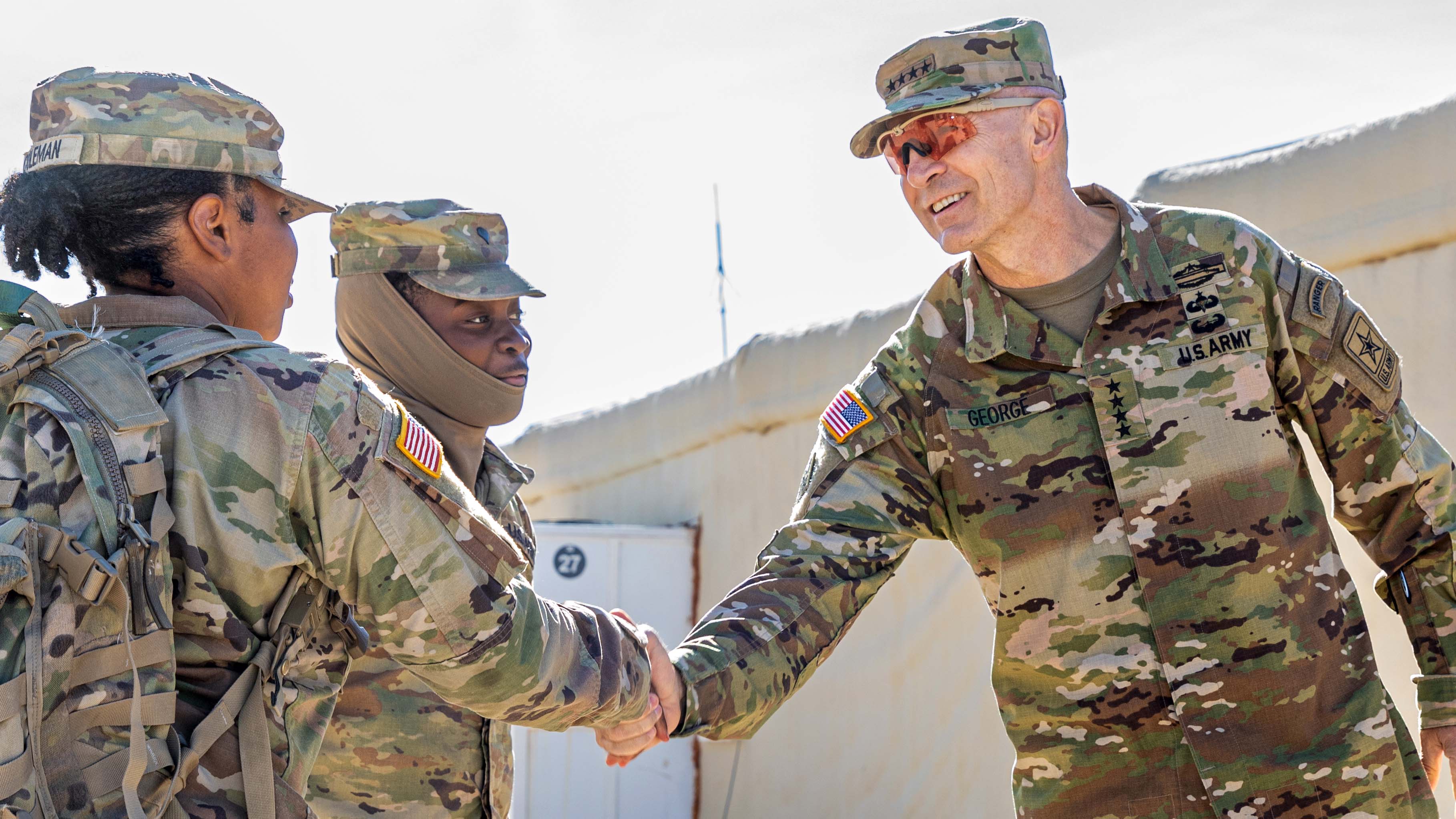George Nominated to Be Next Army Chief of Staff
George Nominated to Be Next Army Chief of Staff

Gen. Randy George, the Army vice chief of staff since August, has been nominated by President Joe Biden to be the Army’s top officer.
If confirmed by the Senate, George would succeed Army Chief of Staff Gen. James McConville, who is retiring this summer after a four-year term.
Before being sworn in as the 38th Army vice chief of staff, George was the senior military assistant to Defense Secretary Lloyd Austin.
A former commander of I Corps and the 4th Infantry Division, George is a 1988 graduate of the U.S. Military Academy at West Point, New York. He commanded I Corps at Joint Base Lewis-McChord, Washington, from February 2020 to June 2021, and the 4th Infantry Division at Fort Carson, Colorado, from August 2017 to October 2019.
As division commander, George led the 4th Infantry Division headquarters to Afghanistan in support of Operation Freedom’s Sentinel. He also was a brigade commander in the division, leading his soldiers to Afghanistan in 2009.
The native of Alden, Iowa, also has served multiple deployments to Iraq.
George’s nomination was received in the Senate on April 20, just one day after he testified on Capitol Hill about the Army’s readiness.
“Our Army must be ready for anything,” George told the House Armed Services Committee’s readiness subcommittee. “We must be ready to deter war and, if deterrence fails, to take the fight to the enemy anywhere around the globe, even in the most hostile environments, just as we've always done.”
George said the Army is supporting combatant commands with ready formations around the world, strengthening partnerships with the defense industry and modernizing the organic industrial base to increase production.
“We are deterring the pacing challenge, China, by exercising and campaigning across the Indo-Pacific theater and holding the line in the European theater alongside our NATO partners, all the while adapting in real time to lessons learned from the war in Ukraine,” George said, adding that those lessons are being quickly incorporated into Army doctrine and training.
The Army’s readiness posture today is strong, but it’s not enough for the challenges of the future, George said, which is why the Army is transforming and modernizing.
“Our Army is also transforming, because, honestly, we don’t have an option,” George said. “Warfare is changing, and we must change because of it to ensure we stay ahead of our potential adversaries.”

